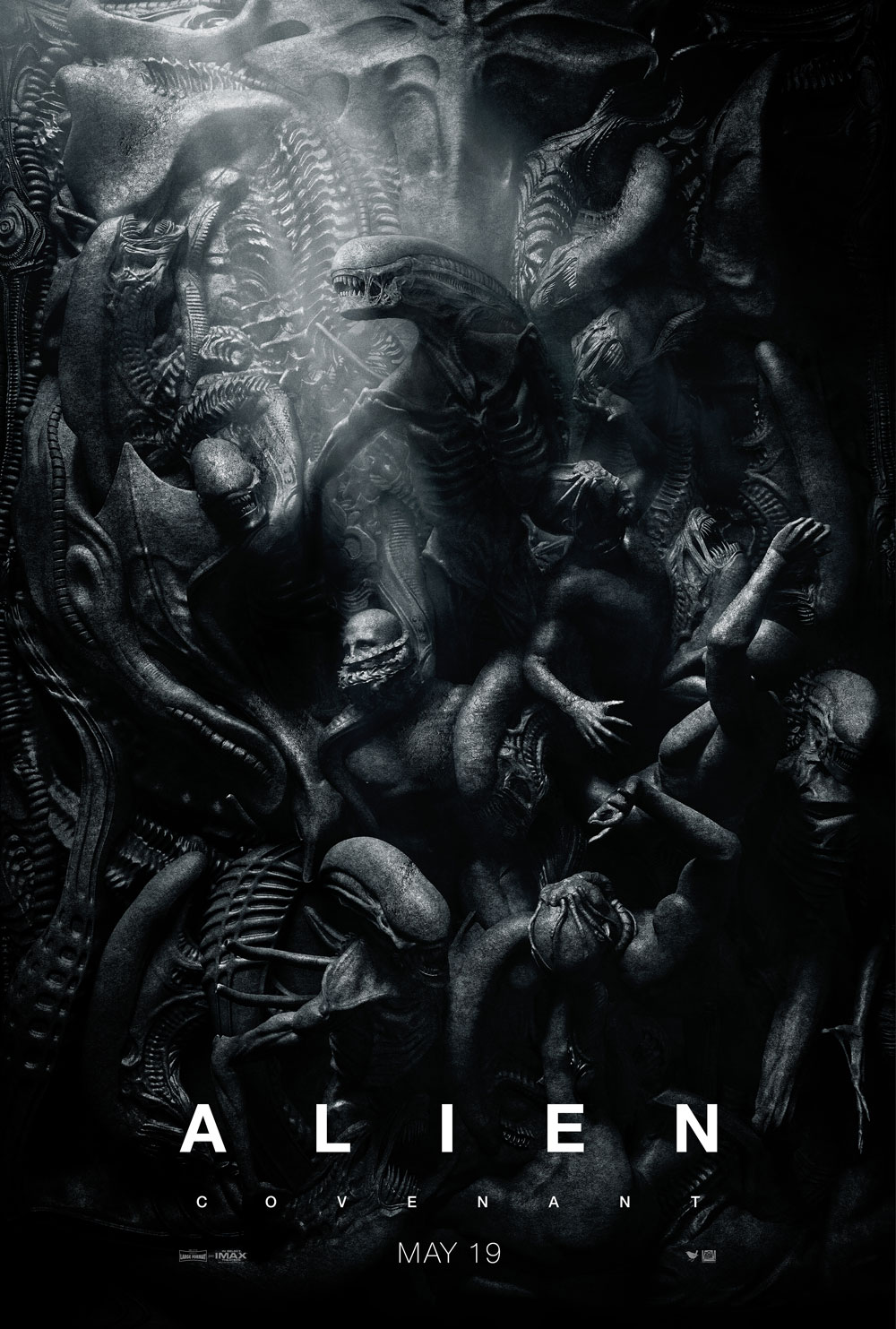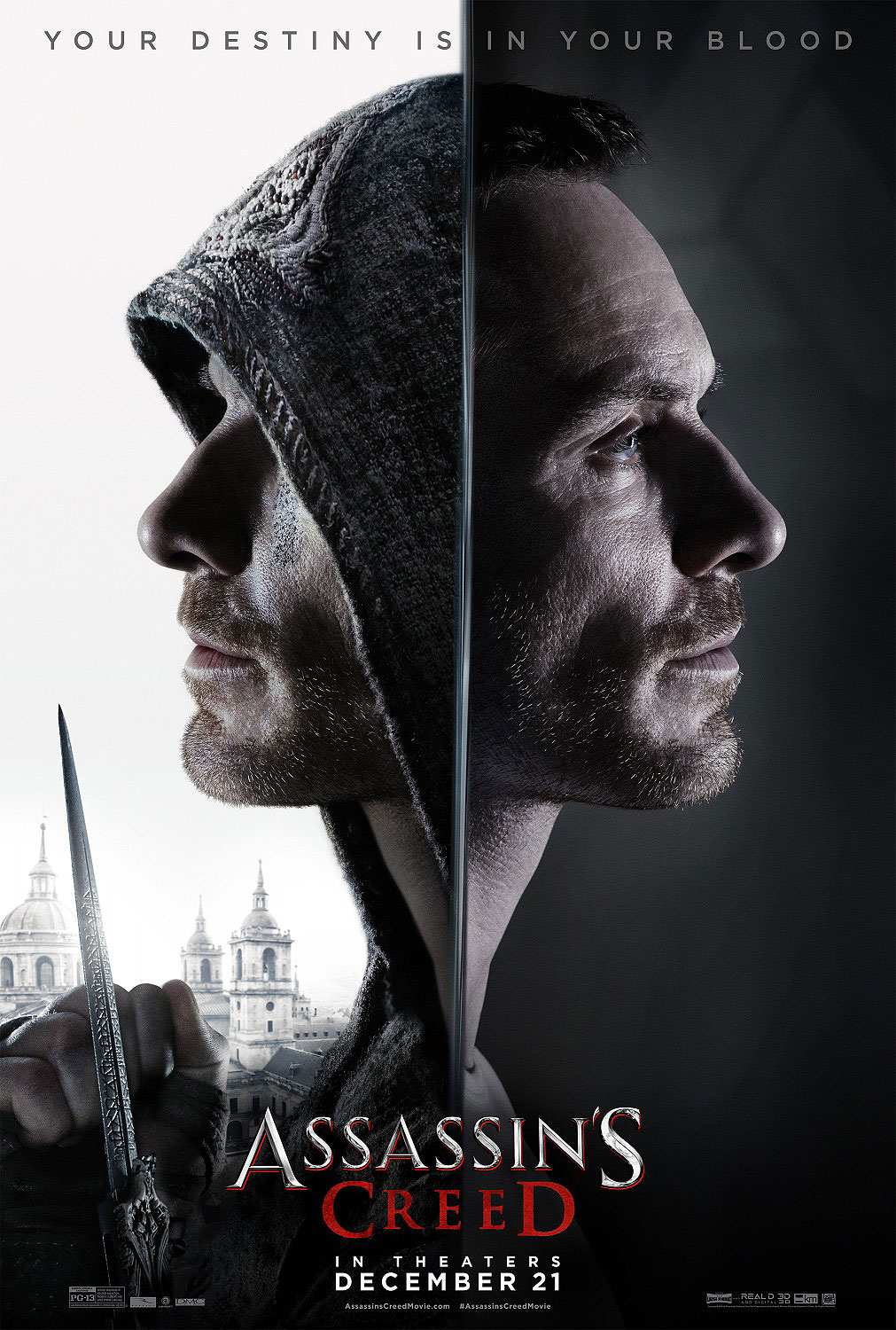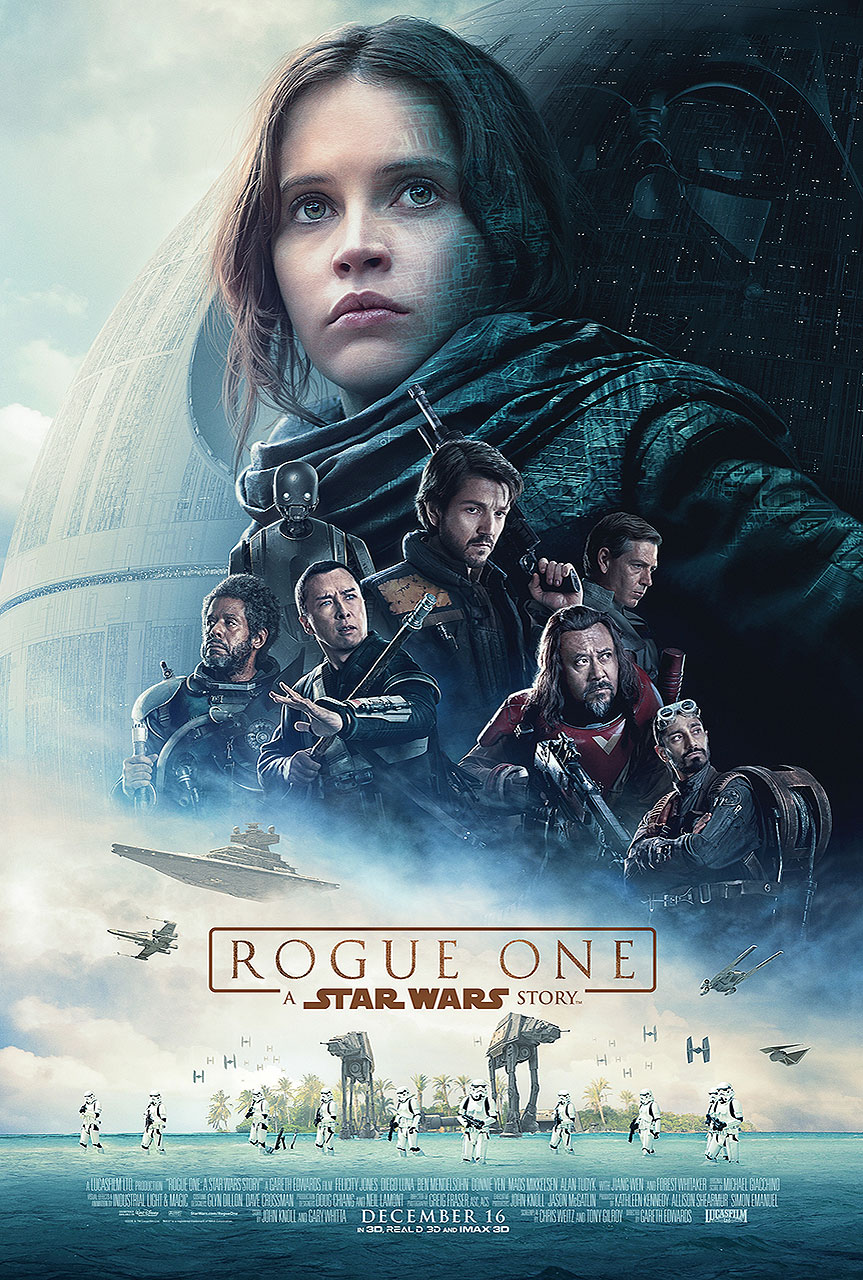Movie Review: “Alien: Covenant”
Posted by Jack Giroux (05/18/2017 @ 10:00 am)
Katherine Waterson, Michael Fassbender, Danny McBride, Billy Crudup, Demián Bichir, Carmen Ejogo
Ridley Scott
Fans of Ridley Scott’s “Alien” can rest easy, because the director’s latest addition to the franchise contains much of the same bite of his classic 1979 film. “Alien: Covenant” is a vicious and thoughtful, albeit unwieldy and sometimes frustrating, piece of science fiction that provides Scott with an epic canvas on which to paint his terrifying vision, all while continuing the ideas that were first introduced in “Prometheus” and the rest of the series.
Set 11 years after the events of “Prometheus” and 17 years before the original “Alien,” the story follows the crew of the Covenant, a colony ship with thousands aboard waiting to wake up to their new home. On the way to the ship’s destination, first mate turned captain Christopher Oram (Billy Crudup) receives a transmission from an unknown planet. Despite protests from crew member Daniels Branson (Katherine Waterson), Oram decides to take a trip to the nearby planet to see if it’s habitable. Unfortunately, it just so happens to be home to some deadly Xenomorphs ready to rip through Oram’s crew, which consists of Covenant pilot Tennessee (Danny McBride), his wife Maggie (Amy Seimetz), Sergeant Lope (Demián Bichir), Karine Oram (Carmen Ejogo) and dutiful android Walter (Michael Fassbender). Along the way, Walter meets a familiar face when he crosses paths with David (Fassbender), the curious android with a god-sized ego from “Prometheus.”
Co-writers John Logan and Dante Harper’s screenplay answers more questions about the expanded universe than its predecessor, for better or worse. Intially, the movie provides answers to questions that aren’t of much interest, most notably regarding the Xenomorphs. “Alien: Covenant” doesn’t demystify the horrifying creatures, but what it does tell us about them can sometimes comes across as redundant in the bigger picture.
Read the rest of this entry »
Movie Review: “Assassin’s Creed”
Posted by Jack Giroux (12/21/2016 @ 9:00 pm)
Michael Fassbender, Marion Cotillard, Jeremy Irons, Brendan Gleeson, Charlotte Rampling, Michael K. Williams
Justin Kurzel
“Assassin’s Creed” is not the video game adaptation that fans have been waiting for. What makes the action film most disappointing is that it comes from director Justin Kurzel, who crafted last year’s visceral adaptation of “Macbeth,” which also starred Michael Fassbender and Marion Cotillard. Kurzel’s latest has style to spare, but it’s missing the soul and emotion from his previous work.
Calum Lynch (Fassbender) has just been given a second chance. Michael Leslie, Adam Cooper and Bill Collage’s script opens with the convicted murder on death row. With his last words, Calum says that he’ll meet his father in hell, but instead of dying, he wakes up, disturbed and shocked, in an unknown location and greeted by Sofia (Cotillard), a scientist who wants to rid the world of violence. She informs Calum that one of his ancestors, Aguilar de Nerha, was an assassin in 15th century Spain, and he has the power to relive his memories through a contraption called the Animus. Sofia and her father, Rikkin (Jeremy Irons), are looking for the “apple,” a MacGuffin that will cure people of violence and destroy free will, and Calum and Aguilar’s memories can lead them right to it. Despite the high stakes, most of the film’s events are inconsequential.
Calum is a blank slate. We know his terrible past, and he describes his aggressive personality, but there’s little internal life to the character, which isn’t true of most of Fassbender’s performances. The world and the rules are the primary focus of the script, not the characters. In the first act, there’s plenty of information revealed but very little of it regards Calum and why we should care about him and what’s beneath the aggression. The character’s underwhelming attempts at comedic relief don’t help matters, either.
Read the rest of this entry »
Movie Review: “Passengers”
Posted by Jason Zingale (12/20/2016 @ 6:00 pm)
Chris Pratt, Jennifer Lawrence, Michael Sheen, Laurence Fishburne
Morten Tyldum
Norwegian director Morten Tyldum may not be as flashy as some of the other filmmakers who’ve broken into Hollywood recently, but between his little-seen 2011 thriller “Headhunters” and his Oscar-winning drama “The Imitation Game,” it’s evident that he has serious chops behind the camera. Despite that past success, Tyldum’s latest project is easily his biggest movie to date – a heady slice of genre-hopping sci-fi developed from one of the hottest scripts in town and starring two of its most bankable stars. Though the film fails to reach its lofty ambitions, “Passengers” is still a surprisingly thought-provoking holiday release that’s biggest misstep is succumbing to the very formula that it works so hard to resist.
Sometime in the distant future, interstellar space travel has not only become a reality but a way for humans like blue-collar mechanic Jim Preston (Chris Pratt) to immigrate to other planets. Jim is one of 5,000 passengers traveling aboard the Starship Avalon, a luxury cruise liner currently en route to the colony world of Homestead II. The Avalon is just 30 years into its 120-year journey, however, when it sustains damage during a meteor storm that causes Jim’s hibernation pod to malfunction, waking him up 90 years too early. Stranded on the ship alone with no way to contact the sleeping crew and only a robotic bartender (Michael Sheen) to keep him company, Jim spends the next year slowly spiraling into depression until he becomes smitten with a fellow passenger named Aurora Lane (Jennifer Lawrence) and decides to wake her prematurely against his better judgement. Jim keeps his involvement a secret from Aurora at first, but as the two grow closer together over time, he becomes racked with guilt. Meanwhile, a larger threat looms in the background when the spaceship inexplicably begins to break down.
Read the rest of this entry »
Movie Review: “Rogue One: A Star Wars Story”
Posted by Jack Giroux (12/15/2016 @ 9:00 am)
Felicity Jones, Diego Luna, Ben Mendelsohn, Alan Tuydk, Riz Ahmed, Mads Mikkelsen, Forest Whitaker, Donnie Yen, Wen Jiang
Gareth Edwards
With “Rogue One: A Star Wars Story,” director Gareth Edwards has made an entertaining and intense, if mildly frustrating, war picture set in a galaxy far, far away. As a huge blockbuster, its tone, morally ambiguous characters and often bleak resolutions set it apart from standard studio fare. The first standalone Star Wars picture is sometimes as admirable as it is enjoyable, but it also has some glaring problems that are clearly holding the movie back from reaching its full potential. The good news is that it’s still a fine start to this new branch of standalone Star Wars stories.
The story opens with a young Jyn Erso (Felicity Jones) seeing her father, Galen Erso (Mads Mikkelsen), being taken away by the Empire’s Orson Krennic (Ben Mendelsohn) in order to complete construction on a powerful space station called the Death Star. After her father is kidnapped, Jyn is raised by rebel-turned-extremist Saw Gerrera (Forest Whitaker), a standout character who’s barely human. Chris Weitz and Tony Gilroy’s script then cuts to an older, more dangerous Jyn in custody of the Empire. She’s been living much of her life under pseudonyms until she’s intercepted by Rebel forces and commanded to lead them to Saw Gerrera. Leading the mission are Captain Cassian Andor (Diego Luna), who doesn’t trust Jyn, and a quippy, rewired Imperial droid named K2-SO (Alan Tudyk), who calculates that the odds she will betray them are strong. In the end, however, Jyn agrees to join the small band of rebels in an attempt to steal the plans for the Death Star.
Read the rest of this entry »














